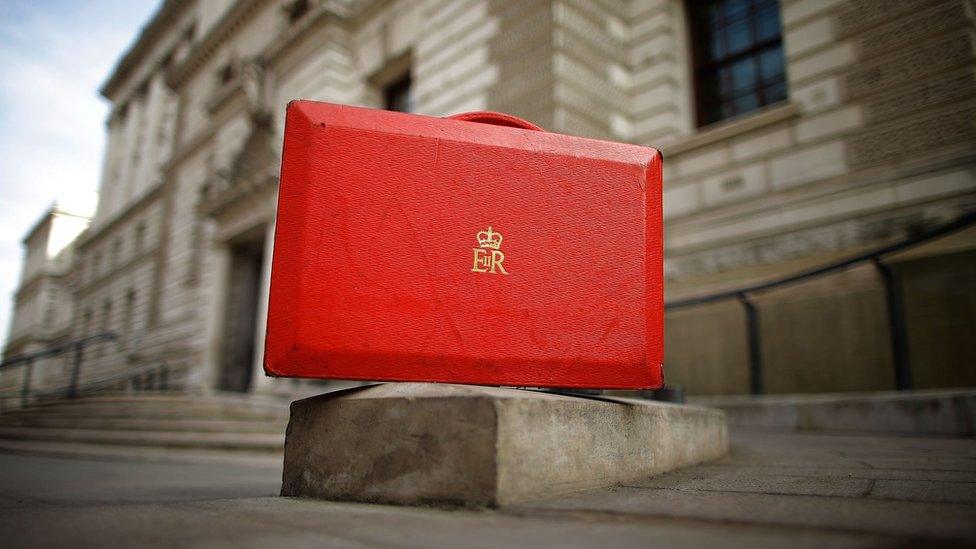Can the Treasury computer say 'Yes' to northern spending?
- Published

This is not just about a change of date for a Budget originally postponed because of the Brexit delay and then an election. A rewiring of the Treasury is in the works.
First, the Budget to be presented on 11 March will be quite fundamentally different to the Budget that never happened.
The election result gives a Commons majority and a mandate to act confidently and decisively, and in a manner that fleshes out the election rhetoric about "levelling up" - helping slow-growing regions of the economy.
In the intervening two months, the Treasury will have to work up a new National Infrastructure strategy that delivers on the plan to rebalance regional inequalities, some of which stem from decisions made nationally on, for example, transport spending.
Insiders suggest that the changes could reach into the heart of the Treasury, taking up advice from independent economists and regional mayors to change the way that the government calculates the value for money of public spending on investment projects.
Reboot
The so-called "Green Book", used to evaluate big investment projects, could be changed to rectify a formula and a process that biases government investment to where economic growth, high productivity, and high house prices are already concentrated - in and around London.
Regional leaders have complained that central government funding has been overly concentrated on economic returns, unlike, say, EU funding which has historically taken social factors into account.
Treasury guidelines also centre only on the returns to such investment occurring within 25 years. The Treasury computer, that often says No, particularly to northern investment, is being rebooted.
On the ground, these changes need to yield visible change. The chancellor announced the new Budget date at a £350m extension to Manchester's tram network that is on course to be delivered well ahead of schedule.
But during the General Election campaign the Conservatives promised, for example, that the network would be extended north to Bolton and south to Stockport. The money promised only kicks in during 2022.
Other changes are being pondered. The Treasury needs a way to measure progress on a regional basis. Current statistics are not up to scratch, and there are none that show the differences in regional inflation or capital investment, and trade between regions.
The formal objectives and structures within Her Majesty's Treasury could also be changed.
More immediately, a big majority offers the opportunity for some tough decisions to be taken at the outset of a five-year Parliament, for example to help the fight against climate change.
There will also be new fiscal forecasts, incorporating slower-than-expected growth over the past few months.
